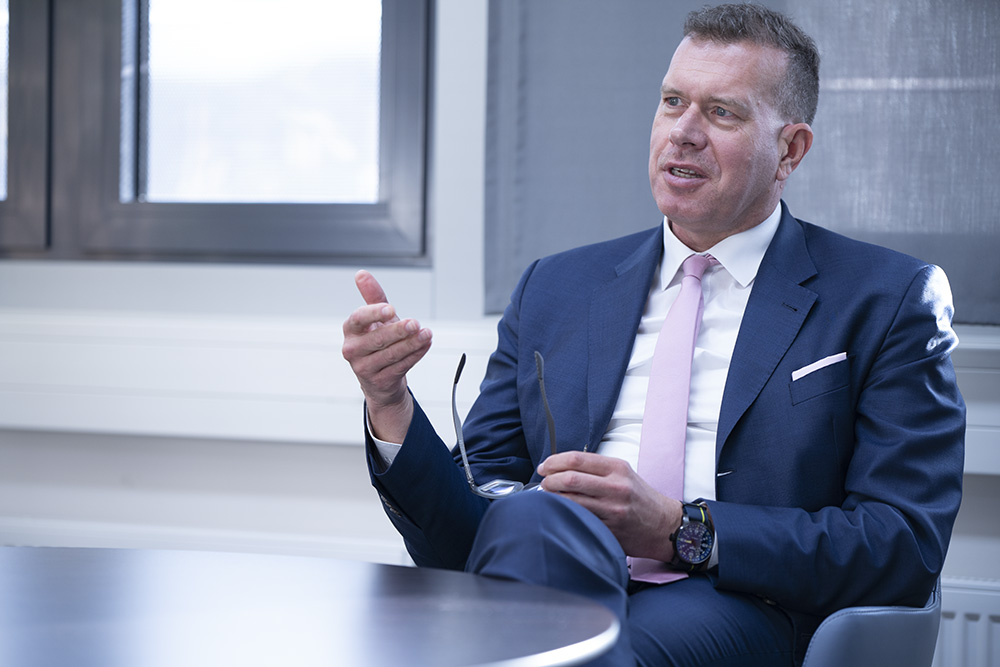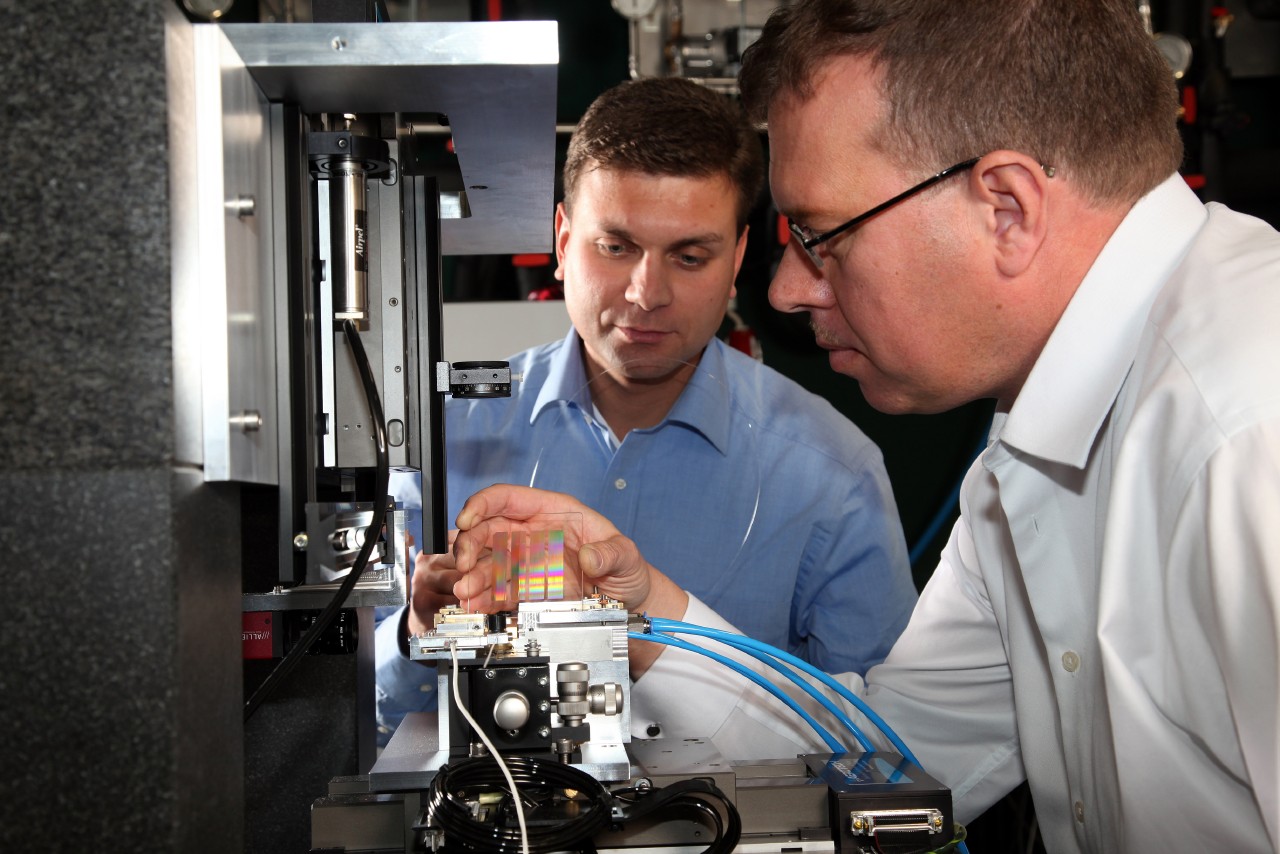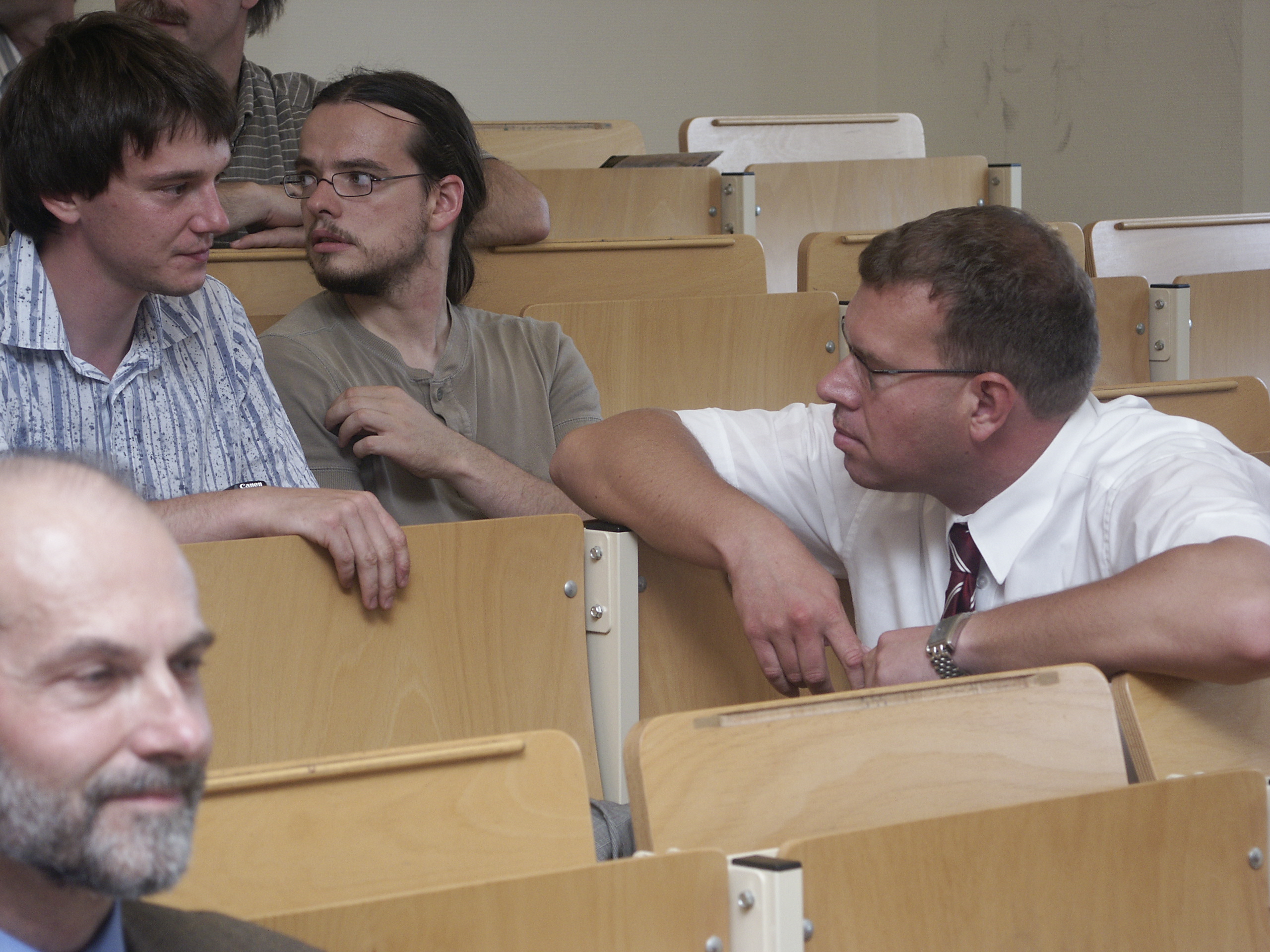Jena (Germany) | December 7, 2023
"Go to Jena, You Are in the Right Place There"
Innovation and inspiration: interview with Prof. Andreas Tünnermann – part 2
For Andreas Tünnermann 2023 is a year of anniversaries: The internationally renowned laser scientist not only celebrated his 60th birthday this summer. He is also looking back on 25 years now as chairholder and professor at the Institute of Applied Physics at the University of Jena, as well as 20 years as director of the Fraunhofer Institute for Applied Optics and Precision Engineering IOF. In more than two decades he has thereby significantly shaped and contributed to Jena as a location for optics and photonics. In a two-part interview with Professor Tünnermann we consequently take a look back, and at the same time shed light on the future.
Find out in this second part why it can be worth it to continue pursuing areas of research outside of the “mainstream”, if there is a right time for starting a business, and what the mid-19th century California Gold Rush has to do with quantum technologies. (Read part one of the interview here.)
»Mr. Tünnermann, at the end of our first conversation you said: ‘It’s all about the people’. The promotion of junior scientists in particular has always been an important concern for you. This can also be seen in the number of young spin-off companies from both institutes during your time in office: There are a total of 19 spin-off companies. How do you motivate young scientists to become self-employed?
Company founders should have an ‘entrepreneur gene’. They always have to ask themselves the question: How can I contribute to actually solving a specific problem? What solutions can I offer? But these questions should not be the only focus of those looking to start a business. They should determine our actions in a fundamental way. These are values that I would like to pass on in my role as a university lecturer and director of a research institute.
So, company founders should always remain up to date. Is it worthwhile to focus on ‘trending topics’? Or should you sometimes deliberately look off the beaten path?
Of course, it is possible that you end up in a situation where you are suddenly told: This research area is exhausted. We had such a development a few years ago in the field of photonics. The statement at the time – including from parts of the community - was that we now knew everything about photonics and therefore no new innovations were to be expected. However, as a matter of fact it turned out that there are still very interesting developments within photonics that can contribute to finding solutions for addressing global challenges.
Without a doubt, photonics will pave the way for future innovation in more key sectors, while at the same time enabling excellent baseline scientific research. This is why more often than not it makes sense to follow your own convictions and show a certain measure of ‘perseverance’, even if the mainstream is working against you. A prominent example for me is fiber laser technology. Very few in the laser community saw the potential of laser geometry for the realization of systems with the highest performance - and in fact our group in particular has been able to develop surprising scaling concepts repeatedly. Today, fiber laser geometry has become the most important model.
»It is my personal goal that the global best of the best come to Germany and Thuringia and are able to realize their ideas with us..«
Andreas Tünnermann
You mention fiber lasers as an example for deliberate decisions on ‘persevering’ on a certain subject. What are current topics for you and your teams at the institutes that you have chosen very deliberately?
The field of quantum technology is one such area. At both institutes, we have set ourselves the task of working out the ‘real benefit’ of using quantum technologies. We do not conduct research for research's sake, but with a view to achieve original contributions to understand fundamental issues or to address relevant application scenarios.
Such decisions always require a healthy dose of courage. Especially the last few years have been characterized by numerous crises, and some researchers and entrepreneurs have been put off by this. In your opinion, is there a ‘good’ or ‘bad’ time - be it for the courage to continue working on a research topic that has been ‘declared dead’ or underestimated, or to even take the plunge into entrepreneurial self-employment?
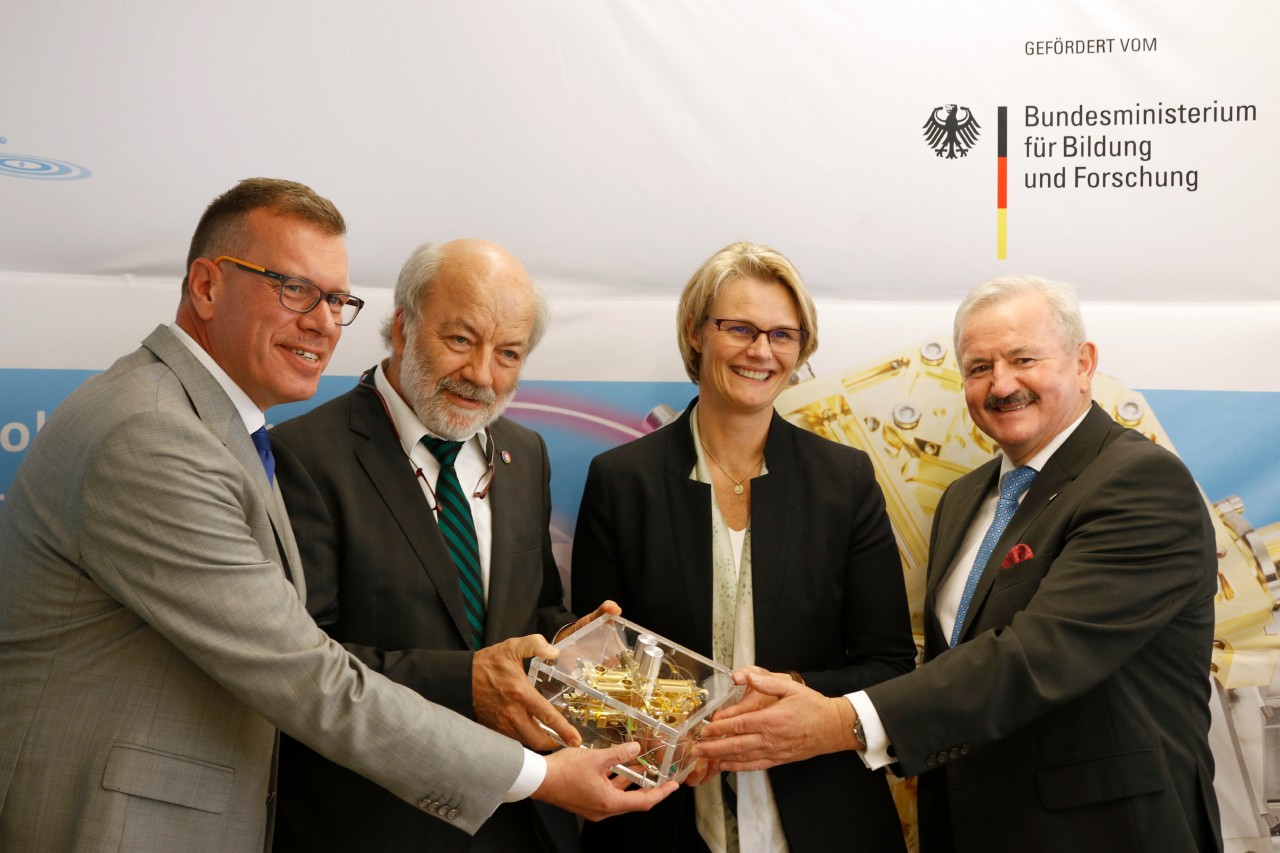
The right time is when you have decided for yourself that you want to put your goals and visions into practice - and then it is ultimately irrelevant whether you are in an economic upturn or downturn - the downturn and the upturn will pass, but the challenge remains.
In your eyes, what makes Thuringia in particular a worthwhile location for new start-ups, but also for other R&D companies?
As a matter of fact, this was a very important reason why I accepted the summons to Jena at the time. I remember very clearly that at one of my first meetings with the then rector and chancellor of the University of Jena, I was asked what actually motivated me to come to Jena, and at that time I already realized that here especially there was an opportunity to transfer knowledge into innovation. I do think that with the environment of these two institutes and the cooperation of colleagues from science and industry we have succeeded in turning this transfer into reality, and thus further developing the Jena brand in the last few years. I am particularly proud of the spin-off companies at this point.
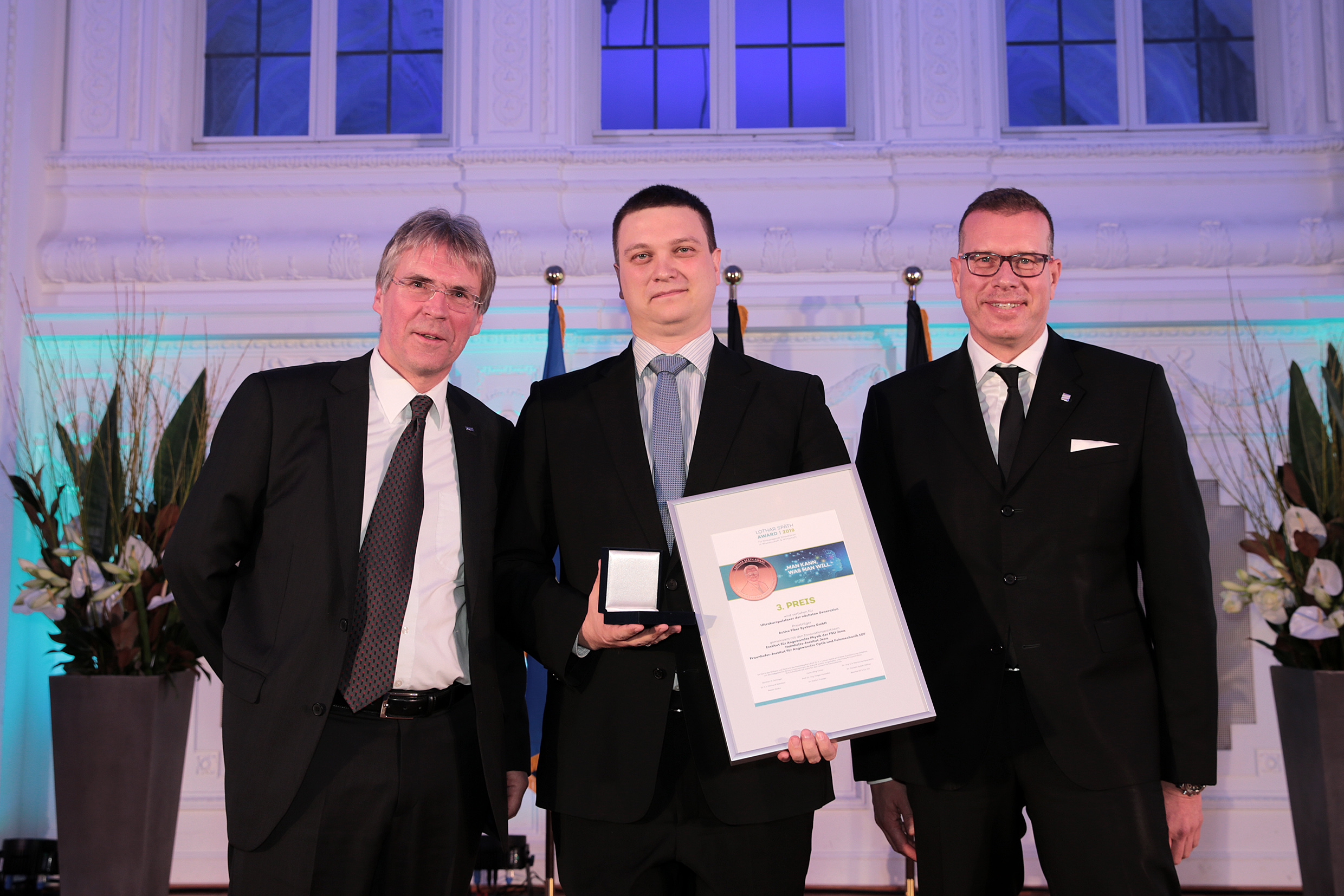
What do Jena, but also the Free State of Thuringia have to do to continue providing favorable conditions for (young) businesses in future?
There are still many unanswered fundamental questions in photonics that need to be addressed, and this research should be used to create new possibilities to control light in a special way. At the same time, special opportunities arise in our industry today with the utilization of quantum physical effects. Photonics is an ‘enabler’ of quantum technologies, and at the moment it is like California in the Gold Rush days: The money is made by those who sell the shovels and sieves. Photonics is supplying the shovels and sieves right now.
My personal hope is that we are able to become an international hotspot for photonic quantum technologies in this region. The Free State, but also the German Federal Government and the EU have strongly supported our research in the last decades – for that I offer my sincere gratitude for the trust placed in us. Of course, I hope that this support will continue in today’s challenging economic times.
For me, the most important investments here are in the people themselves. It is my personal goal that the global best of the best come to Germany and Thuringia and are able to realize their ideas with us. With the ASP and the MPSP we have created attractive courses of study on an international scale, as over 1,000 applications per year markedly show. I hope that we can further develop these study programs with the help of the public and industry sector. Everyone’s future will be dependent on whether or not we’ll be able to attract the brightest minds to Germany and keep them here.
»My personal hope is that we are able to become an international hotspot for photonic quantum technologies in this region«
Andreas Tünnermann
Lastly, what would you like to pass on to your colleagues at the IAP and Fraunhofer IOF?
Stay true to yourselves! Try putting your dreams and visions into practice and be courageous and resolute in doing so – AND: Thank you for the good teamwork!!!
Thank you for the interview, Mr. Tünnermann! We wish you all the best and hope for many more years of innovation and inspiration.«
Read the first part of the interview here. Find out more about Andreas Tünnermann's first successes in Jena, about the special "spirit" of the traditional optics location at the Saale and about the mission-driven combination of excellent research and its application at Fraunhofer.
